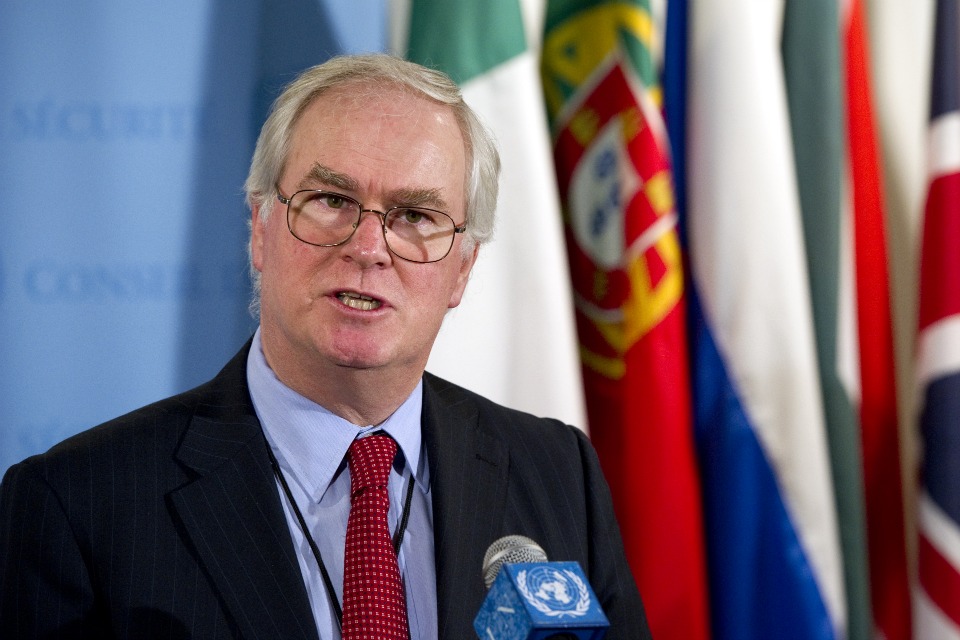Efficient and transparent Security Council is in the interest of all Member States
Statement delivered by UK Ambassador and Permanent Representative Mark Lyall Grant to the UN Security Open Debate on Working Methods

Thank you, Mr President, for convening this debate, and for building on our recent practice by holding this as an open debate to enable member states not on the Council to participate. The number of those inscribed on the speakers’ list reflects the high level of interest in this issue and importance to all members. An efficient and transparent Security Council is in the interest of all Member States as we confront new, and different challenges, to international peace and security.
Mr President,
There have been many positive development in recent years, including more open meetings, Arria formula meetings, use of video conferencing, meetings with troop contributing countries, horizon scanning and wrap-up sessions. In many ways the Security Council has proved the most adaptable of all UN bodies. But today, I want to focus on just two aspects of this issue. The first concerns the procedural aspects of the Council’s work, and the second examines how our working methods allow us to exercise our responsibilities in the area of conflict prevention. The Council is regularly engaged on matters that are current threats to international peace and security. But, if we can engage and exert influence at the right moment, we could prevent these situations from becoming threats. Then we will be fully exercising our responsibilities.
On the first issue Mr. President, the imperative for an efficient Council is indisputable. The Council agenda is already full, and it’s growing. The time for meaningful discussion and exchange within the Council is being squeezed as a result. A larger Council, which we fully support, would redouble this pressure. These points alone make a clear case for ensuring the work of the Council is made as efficient as possible. There are a number of ways in which we can achieve a more efficient Council, as we demonstrated during the UK Presidency in June. Simply by starting meetings promptly and fully observing the guidelines set out in Presidential Note 507 with regards to the length of interventions we concluded a substantial amount of business in June. But, we should go further and I, for one, would support implementing, in the Security Council the African Union PSC practice of turning off the microphones of speakers who have exceeded their allotted time. This would expedite business and allow more speakers to be heard. It is entirely possible to keep to short interventions without limiting the ability of member states to fully express their views. I am sure this would also be the case if we did adopt the African Union practice. I congratulate Ambassador Perceval as Chair of the Informal Working Group on Documentary and other Procedural Questions for restating and building on established measures for conducting business efficiently and transparently. The Presidential Note 507 has been an important reference point in this regard, as have the two Notes issued earlier this year. We should make sure that we implement their content fully.
Mr President, On my second point, maintaining international peace and security is as much about conflict prevention as it is about conflict management or resolution. This Council should take full advantage of mechanisms at its disposal, such as horizon scanning, to exercise a preventive function. Horizon scanning sessions are an opportunity for the Secretariat to brief on issues of concern. Discussions under Any Other Business or requests for urgent Council meetings can also be held on rapidly evolving or emerging situations. Many Council members have used these mechanisms in recent months. Last week Council members used these tools to discuss the situations in eastern DRC and South Sudan. It is very welcome that Council members are approaching our conflict prevention responsibilities in this pro-active way. Prior to this, such discussions have covered Egypt, and UNDOF. We also welcome the Secretariat’s readiness to bring troubling situations to the attention of the Council, as recently with the Maldives and Guinea, making Article 99 of the Charter an active tool for conflict prevention. Horizon scanning briefings have covered Syria and its neighbouring countries, the Sahel, and Iraq/Kuwait, among many other issues. The Council issued a press statement following the discussion of Guinea last week. And we hope that the parties in Guinea will act on it, because elsewhere we have seen positive responses to Council products following these forward-looking discussions are possible. The parties in Sudan and South Sudan have been made fully aware of the Council’s views on the various issues in urgent need of resolution, including Abyei. The Presidential Statement on Yemen in February this year sent a clear message to would-be spoilers seeking to undermine the National Dialogue and transition in Yemen. Adopting a conflict prevention mindset and using such mechanisms and working practices gives the Council a powerful toolkit to examine and respond to emerging crises. We should not be afraid to use it: early, effective responses from the Council can go a long way to prevent further deterioration. We have only to look at the situation in Syria to see how lack of action over many months allowed the conflict to escalate, with the horrific consequences that we see today. Mr President, A modern, transparent, efficient Council is plainly in the interests of all Member States. The risks of not achieving this goal are equally plain, particularly in the area of conflict prevention. As I said in June at the end of the UK Presidency, improving the working methods is not merely desirable, it is essential.